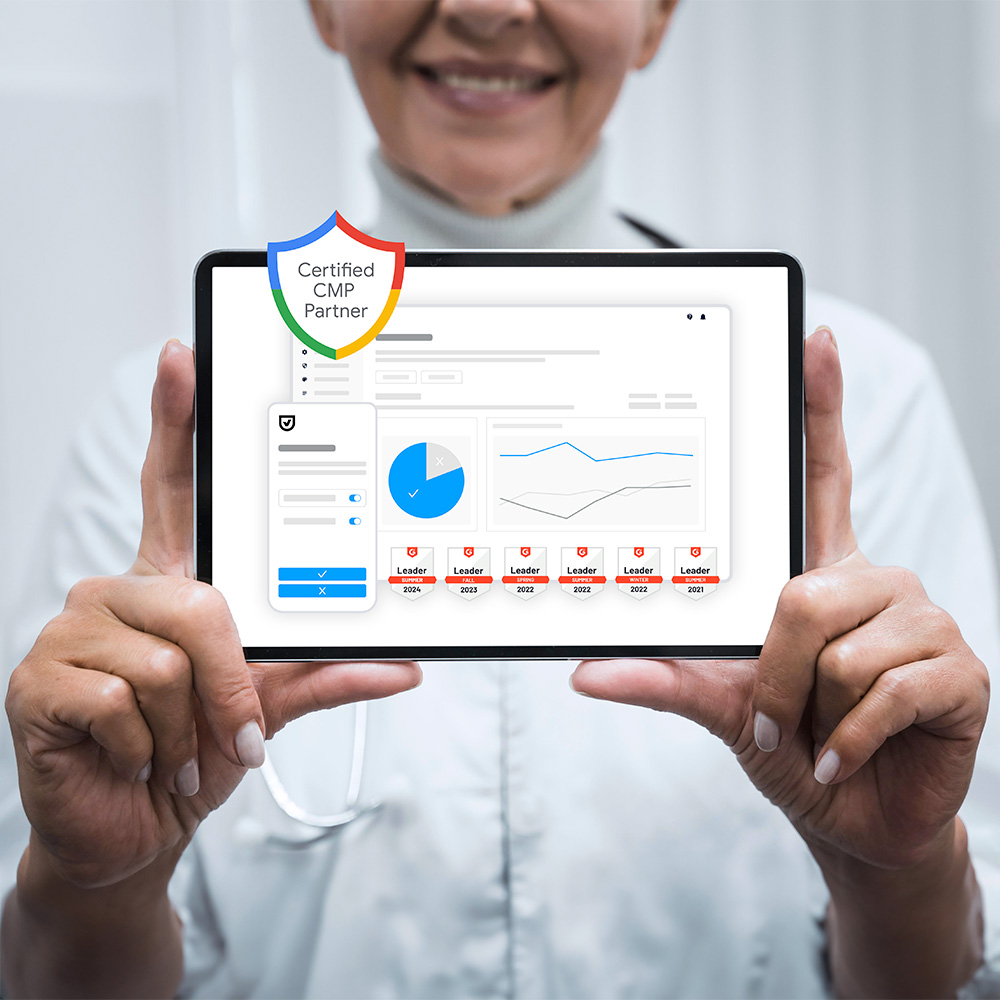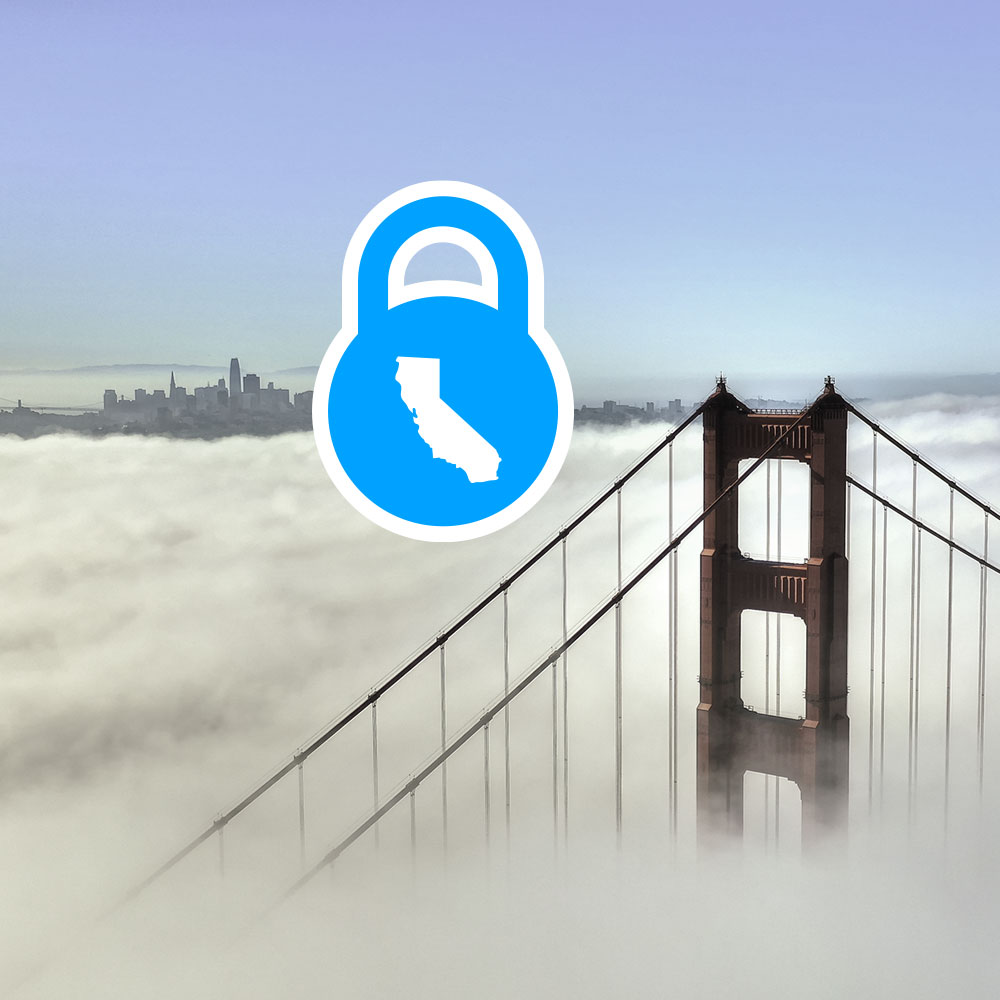With the arrival of data protection regulations like the European General Data Protection Regulation (GDPR), and more recently the Digital Markets Act (DMA), there continues to be a heightened focus on user privacy and consent. We’ve even heard that “data privacy is the hottest industry of the next decade”.
In this context, Google’s Additional Consent has emerged as a key tool for managing consent for Google’s ad tech providers. In this guide, we’ll dive deep into what Google’s Additional Consent is, why it’s important, and how solutions like Usercentrics CMP and Cookiebot CMP can help you navigate ever-changing requirements effectively.
What is Google’s Additional Consent?
Google’s Additional Consent is a technical specification designed to enable publishers to collect and signal additional consent for ad tech providers that are not part of the IAB Europe’s Transparency & Consent Framework (TCF) v2.2, but are listed on Google’s Ad Tech Providers (ATPs) list. This specification is crucial for publishers that want to work with ad tech providers not using the TCF.
It’s important to note that Google’s Additional Consent doesn’t replace the standard IAB TCF v2.2 consent collection process, but supplements it, enabling an extra layer of consent collection for Google ATPs.
Why is Google’s Additional Consent important?
Google’s Additional Consent has significant implications for publishers. Firstly, it presents an opportunity to collect consent from a broader range of ad tech providers, potentially leading to increased ad revenue. Secondly, it helps enable compliance with Google’s EU User Consent Policy, a necessary condition for publishers using Google’s ad products.
When consent for ad personalization is not obtained, Google defaults to serving non-personalized ads or no ads at all to EU users. This can seriously impact your ad revenue. By implementing Google’s Additional Consent, you can continue serving personalized ads to your users and preserve your ad revenue stream.
Understanding the key components of Google’s Additional Consent
Google’s Additional Consent introduces the concept of the “Additional Consent” (AC) string. This string consists of several parts, including a specification version number, a list of consented Google ATP IDs, and a list of disclosed Google ATP IDs.
The AC string is significant because it stores the consent information for Google ATPs. It’s created by an IAB Europe TCF-registered Consent Management Platform (CMP) like Usercentrics’ and is intended to supplement the standard TCF Transparency & Consent String (TC string).
The AC string plays a crucial role in informing Google and its ATPs about the user’s consent preferences, enabling the delivery of personalized ads in compliance with the user’s choices and regulatory requirements.
Changes in Additional Consent
Google announced that starting from December 6, 2023, it supports the Additional Consent specification. This update includes changes to the AC string to support vendors disclosed in the CMP and modifications to the CMP API for interoperability.
The transition to Additional Consent underscores Google’s ongoing commitment to transparency and user privacy. It also signals the evolving complexity of consent management, further emphasizing the need for robust consent management platforms.
Role of consent management platforms (CMPs)
A consent management platform (CMP) plays a critical role in managing user consent across your digital properties. It enables you to collect, manage and document user consent in compliance with global privacy regulations.
In the context of Google’s Additional Consent, a CMP plays a significant role in creating the AC string. This task can only be done by an IAB Europe TCF-registered CMP, ensuring that the process aligns with industry standards and best practices.
Usercentrics CMP and Cookiebot CMP: Your allies in consent management
Usercentrics CMP and Cookiebot CMP are TCF-registered. Both are on Google’s list of certified CMPs that successfully integrate with the standard IAB Europe TCF v2.2 and support Google Additional Consent.
This makes them particularly valuable for publishers looking to navigate the complexities of consent management, particularly in the EU.
Usercentrics CMP and Cookiebot CMP help you manage user consent on your websites and apps. They enable compliance with global privacy regulations, facilitate high consent rates, and help build trust with your customers.
Usercentrics CMP and Cookiebot CMP’s support for Google’s Additional Consent means they can assist you in collecting and signaling additional consent for Google ATPs. This empowers you to display ads from a wider range of ad tech providers, potentially boosting your ad revenue.
Read about Google consent mode now
Embracing Google’s Additional Consent with Usercentrics CMP and Cookiebot CMP
In conclusion, Google’s Additional Consent is an essential tool for publishers in the era of stringent data privacy regulations. It enables you to collect additional consent for Google’s ATPs, helping ensure compliance with Google’s EU User Consent Policy and potentially increasing your ad revenue.
Leveraging certified consent management platforms like Usercentrics CMP and Cookiebot CMP can greatly simplify your journey in implementing Google’s Additional Consent. Our comprehensive consent management capabilities, coupled with the support for Google’s Additional Consent, make our CMPs invaluable assets for any publisher looking to master consent management in today’s digital landscape.
Remember, opting for a comprehensive consent solution isn’t just about privacy compliance or ad revenue, it’s about respecting user privacy and building trust with your audience. In the long run, these are the factors that truly contribute to a sustainable and successful digital publishing business.
Usercentrics (Cookiebot™) does not provide legal advice; information is provided only for educational purposes. We always recommend engaging qualified legal counsel or privacy specialists regarding data privacy and protection issues and operations.





